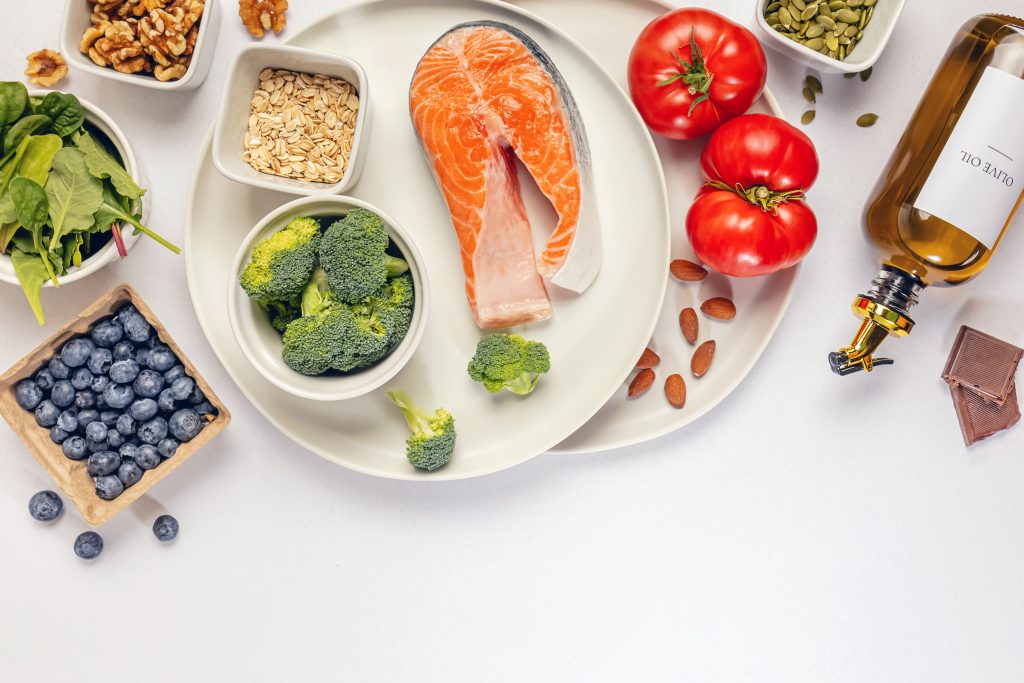 By Annette Brooks
By Annette Brooks
Have you wondered why there’s so much talk about inflammation in the body these days? What causes all this inflammation in the first place, and is there anything we can do about it?
First, some basics. Inflammation is essential to your body’s natural defensive mechanism and healing process, whether due to injury, illness, or exposure to toxins and germs. It can spell trouble, however, when inflammation gets out of hand, and you develop chronic systemic inflammation without a definitive link to injury, disease, or infection.
Left unaddressed, chronic inflammation can trigger a cascade of adverse effects on your body. In addition to pain, fatigue, and digestive issues, chronic inflammation can affect the ability to get good, restorative sleep, increase the risk of cancer and cardiovascular disease, create breathing difficulties, contribute to bone loss and aging skin, lead to cognitive decline and dementia, and even cause low mood and other depressive symptoms.
Curb Chronic Inflammation with Lifestyle and Diet Changes
Some links to elevated levels of inflammation, such as increasing age, are unavoidable. But there are several steps you can take to help reduce inflammation, such as avoiding chronic stress, not consuming alcohol in excess, increasing physical activity, and fighting obesity by keeping your weight within a normal range. Also, remember that our bodies require adequate hydration for optimal function. Even mild dehydration can have effects at the cellular level and promote inflammation.
Another way to fight inflammation is to adopt an anti-inflammatory diet, which packs a one-two punch. First, it supports eliminating — or at least significantly reducing — foods and ingredients associated with a higher production of pro-inflammatory molecules in the body. In other words, the foods and beverages that promote inflammation. They are the usual culprits that negatively affect our overall health, including red and processed meat and foods and products high in refined sugar, refined carbohydrates, and unhealthy fats such as saturated and trans-fats.
Secondly, it promotes eating anti-inflammatory foods, usually consumed close to their original form, versus being overly processed. According to Harvard.Health.edu, anti-inflammatory foods include olive oil, nuts like almonds and walnuts, tomatoes, fatty fish such as salmon, mackerel, tuna, and sardines, fresh fruits, including oranges, cherries, strawberries, and blueberries, and green leafy vegetables like spinach, kale, and collards.
Additionally, cruciferous vegetables, such as broccoli, cauliflower, and Brussels sprouts, can produce anti-inflammatory effects, as well as eating whole grains such as quinoa, barley, brown rice, and others. And some good news for coffee lovers, “coffee, which contains polyphenols and other anti-inflammatory compounds, may protect against inflammation.”
Visit Healthline.com/nutrition/13-anti-inflammatory-foods for a longer list of anti-inflammatory foods to eat.
An Ounce of Prevention is Worth a Pound of Cure
Systemic chronic inflammation tends to sneak up on you gradually over time. It can build to the point where you awaken one day and wonder what’s happening to your body, but you don’t want it to become so acute that you reach this point. It doesn’t hurt to start incorporating anti-inflammatory foods into your diet today, even if you don’t have chronic inflammation symptoms. Plus, adopting an anti-inflammatory diet is usually good for your overall health.
According to the National Institutes of Health (NIH), common signs and symptoms of chronic inflammation include:
- Body pain, arthralgia, myalgia
- Chronic fatigue and insomnia
- Depression, anxiety, and mood disorders
- Gastrointestinal complications like constipation, diarrhea, and acid reflux
- Weight gain or weight loss
- Frequent infections
Adopting lifestyle changes and starting an anti-inflammatory diet can be a positive step, but be sure to also schedule an appointment with your doctor if you’re suffering from symptoms of chronic inflammation. It’s imperative to identify or rule out any underlying conditions and diseases, some of which may be life-threatening, that could be causing your symptoms.
Also, keep in mind that starting and maintaining an anti-inflammatory diet can take some work. Talk with a dietician or nutritionist who will create a customized menu plan for you, provide tips on time-saving shortcuts, and help you stay on track.










